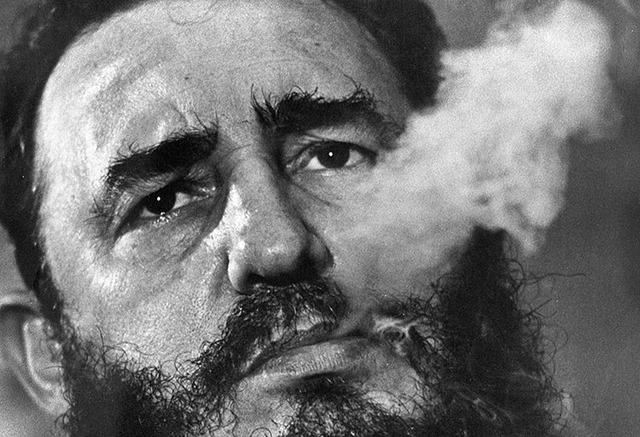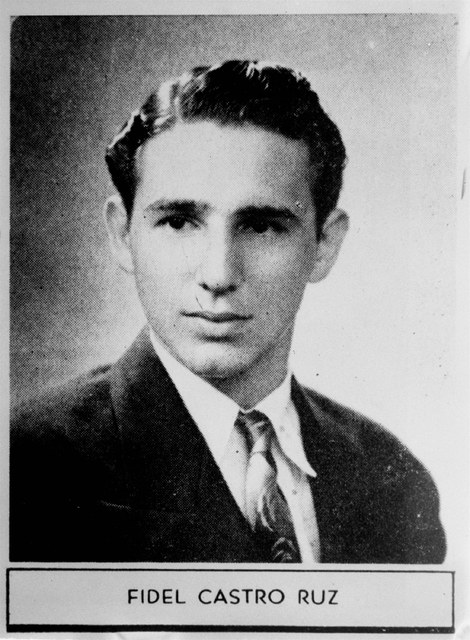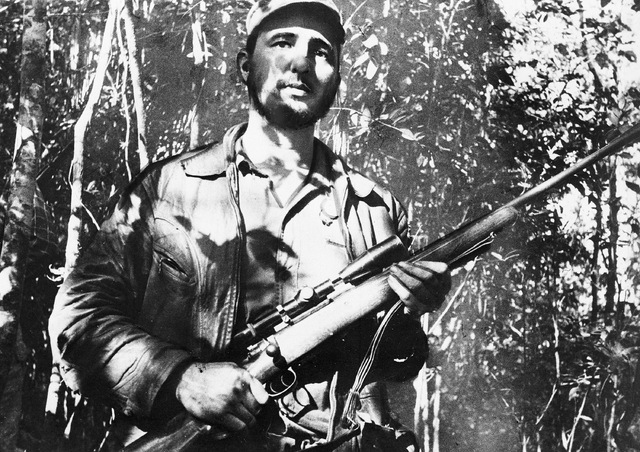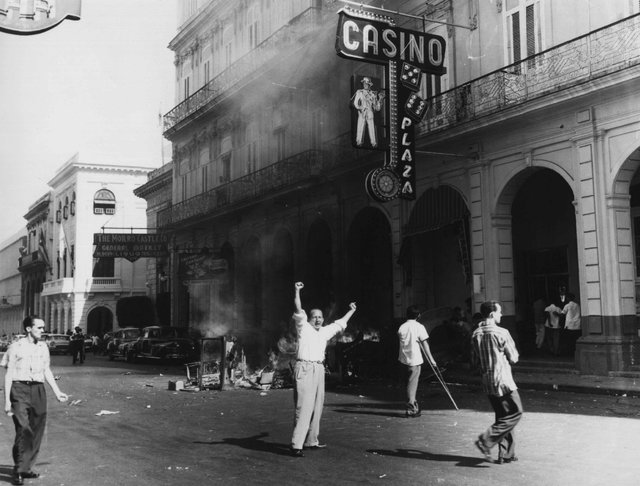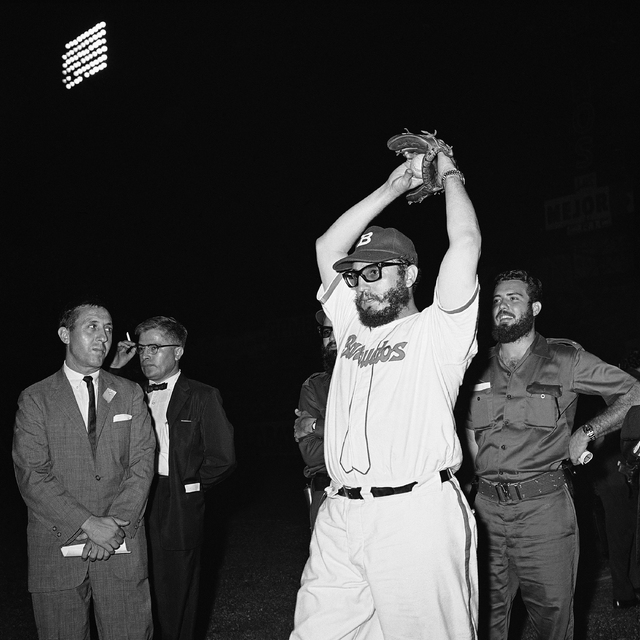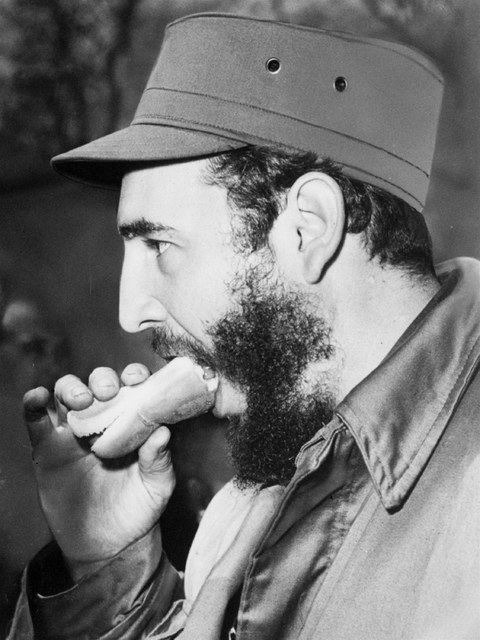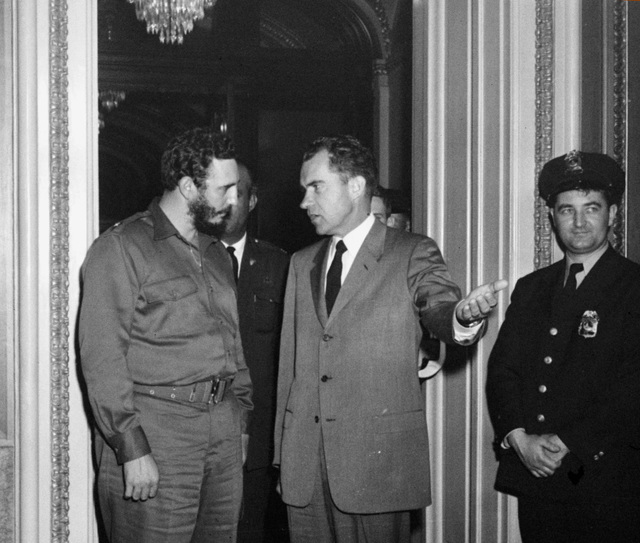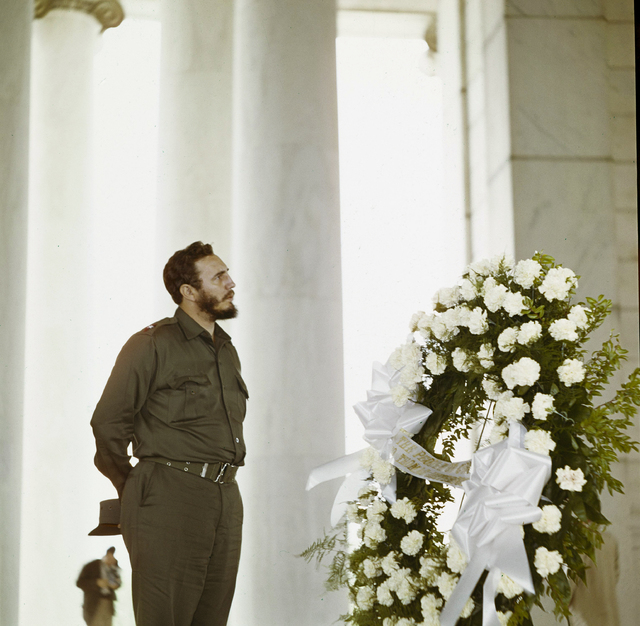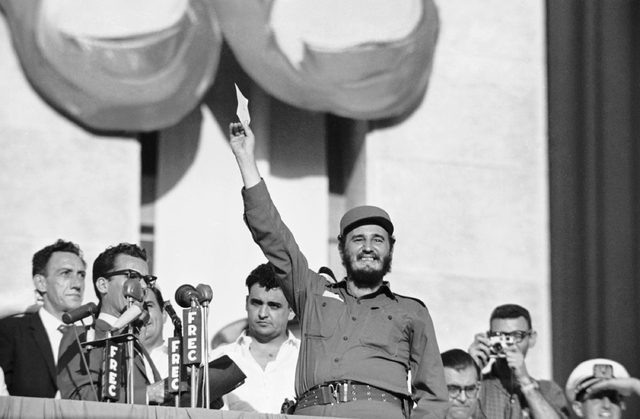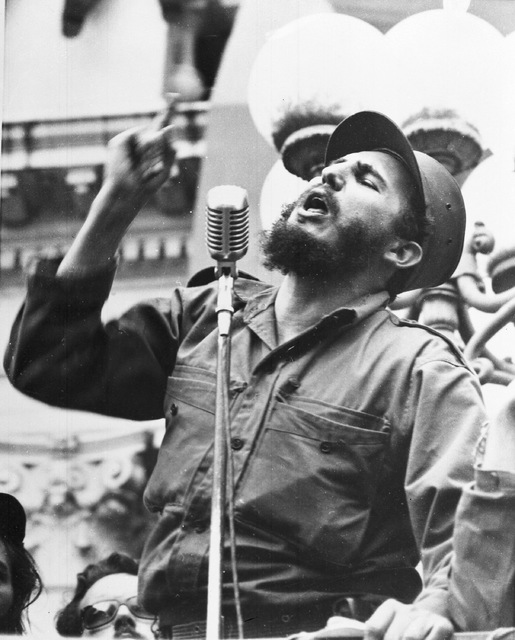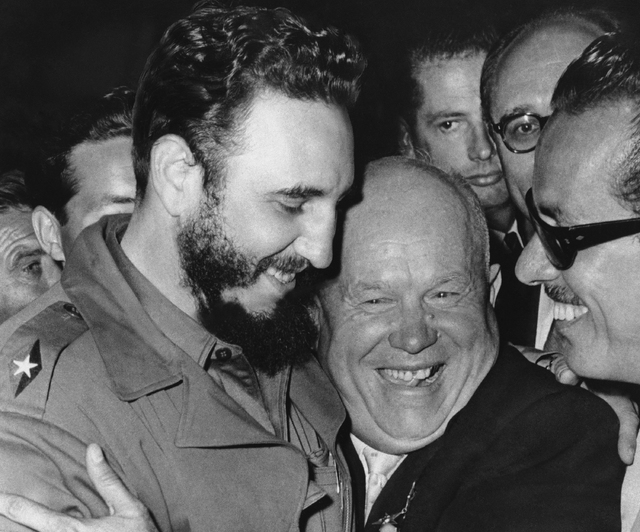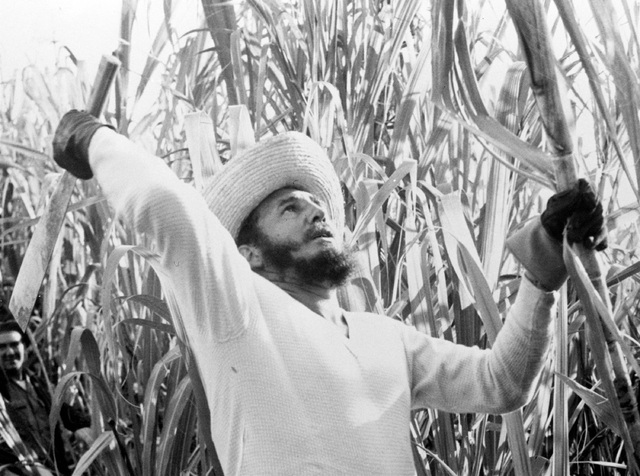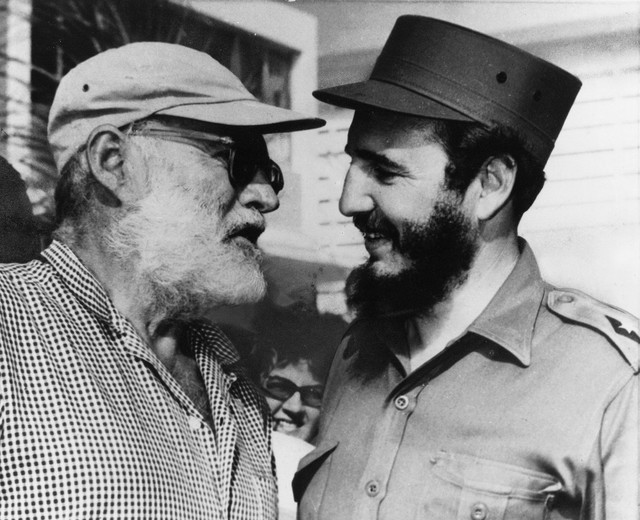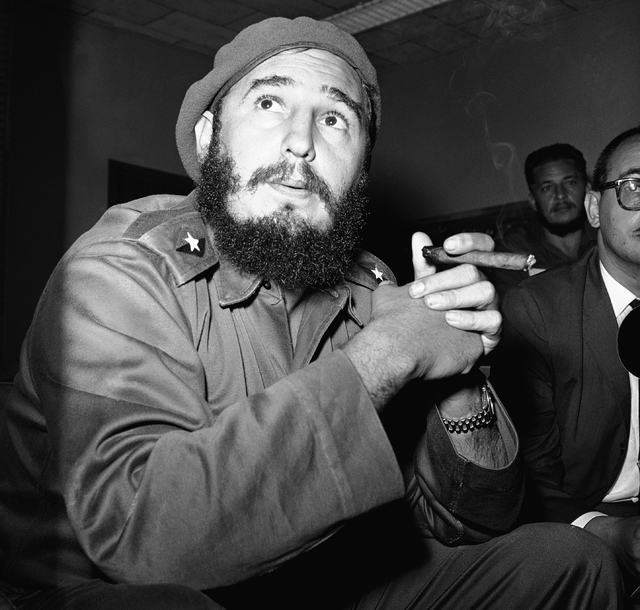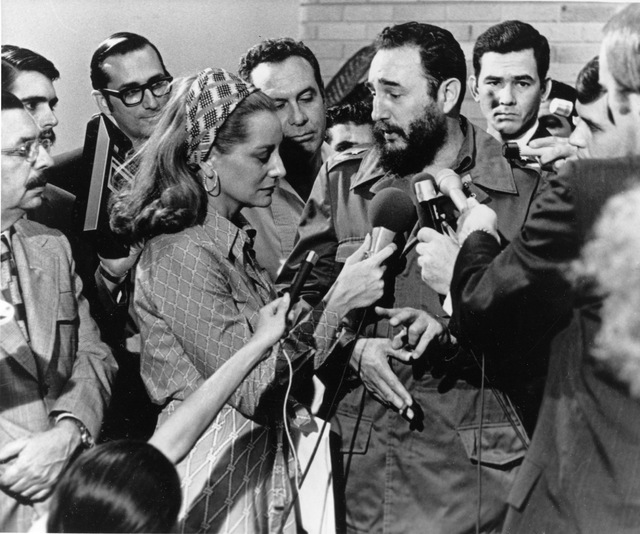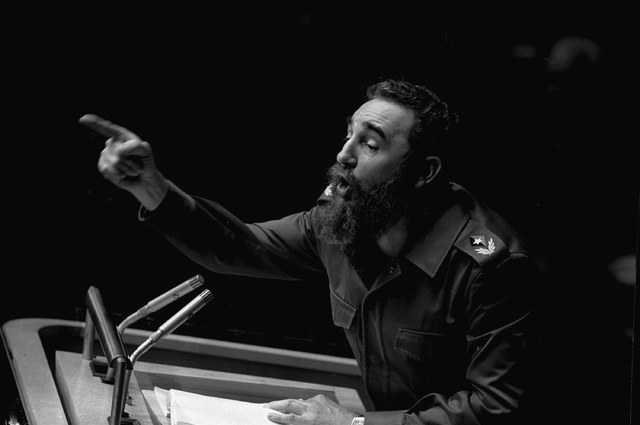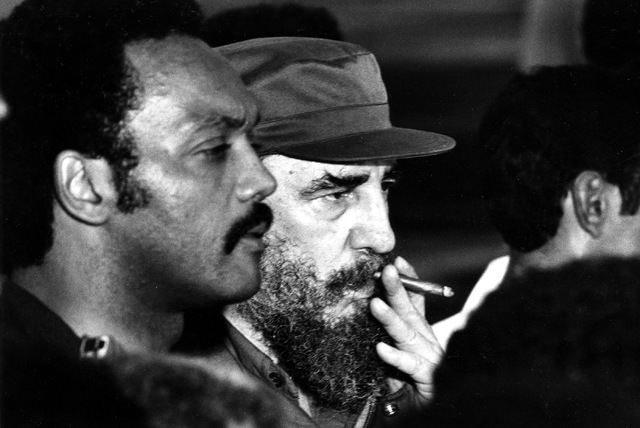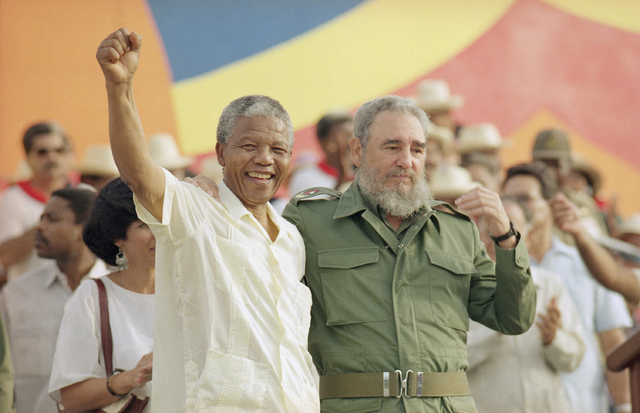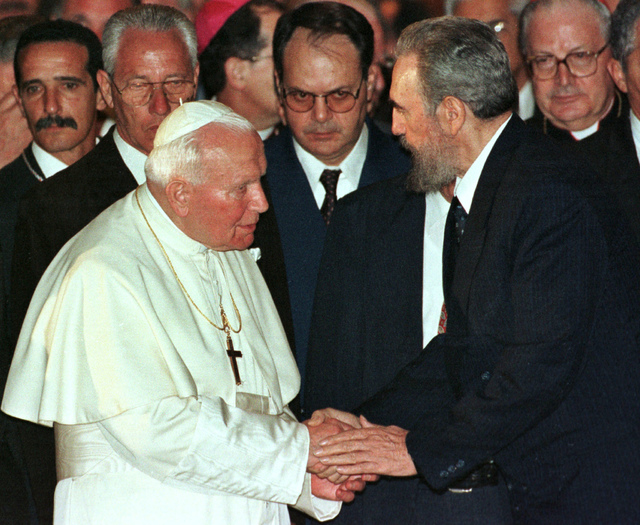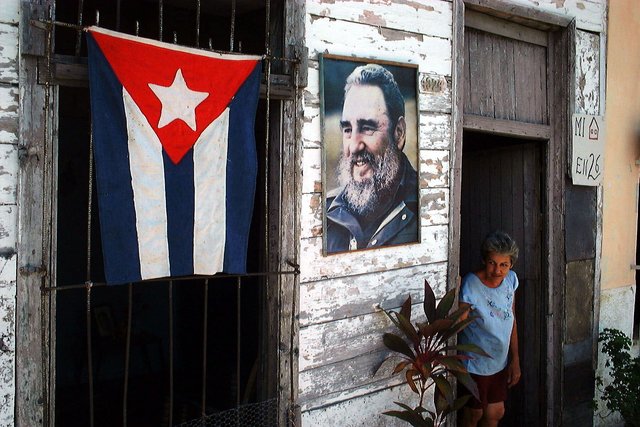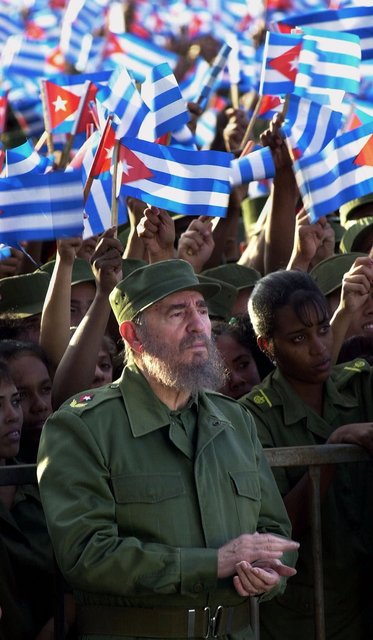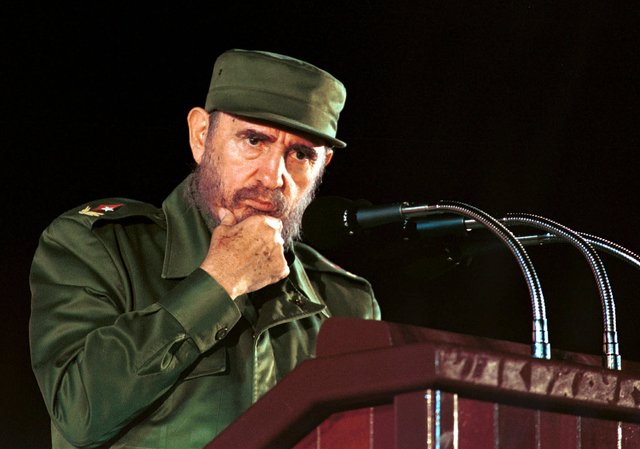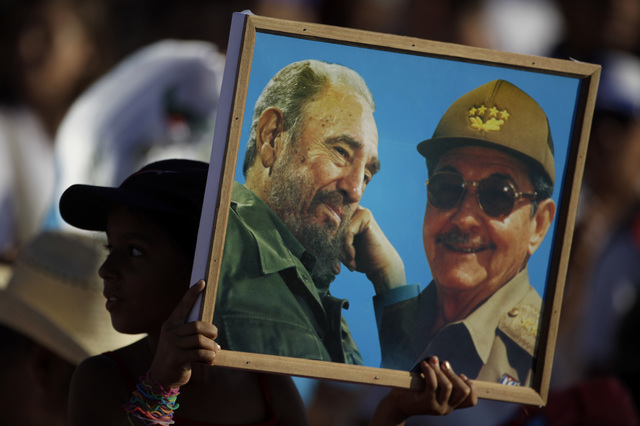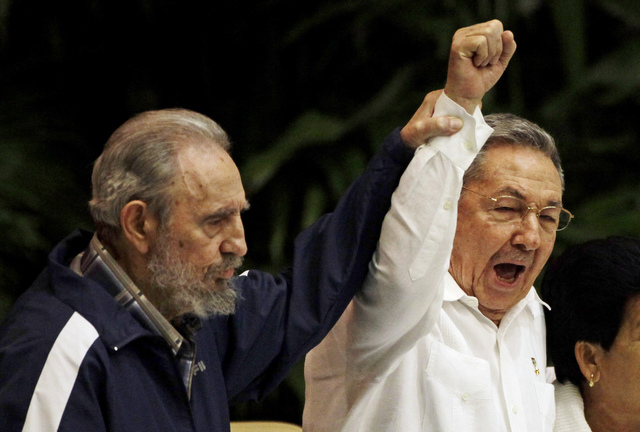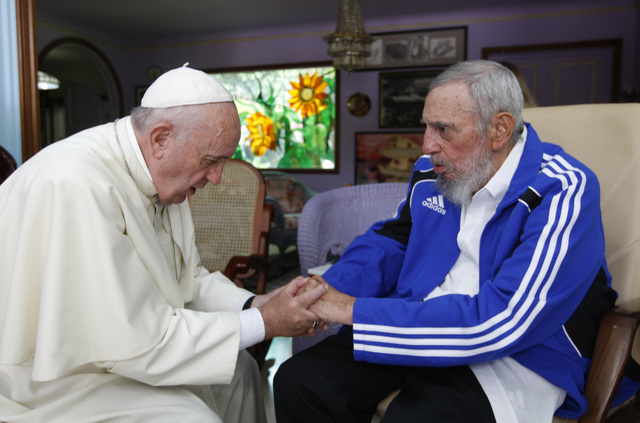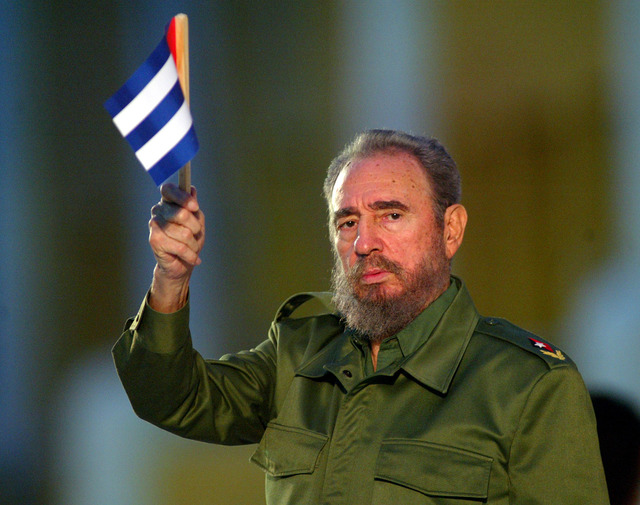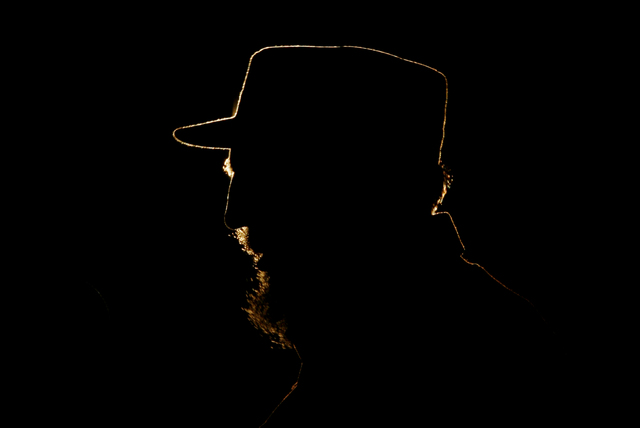Cuba’s Fidel Castro, who defied US for 50 years, dies at 90
HAVANA — Former President Fidel Castro, who led a rebel army to improbable victory in Cuba, embraced Soviet-style communism and defied the power of 10 U.S. presidents during his half century rule, has died at age 90.
Castro’s reign over the island-nation 90 miles from Florida was marked by the U.S.-backed Bay of Pigs invasion in 1961 and the Cuban Missile Crisis a year later that brought the world to the brink of nuclear war. The bearded revolutionary, who survived a crippling U.S. trade embargo as well as dozens, possibly hundreds, of assassination plots, died eight years after ill health forced him to formally hand power over to his younger brother Raul, who announced his death late Friday on state television.
Castro overcame imprisonment at the hands of dictator Fulgencio Batista, exile in Mexico and a disastrous start to his rebellion before triumphantly riding into Havana in January 1959 to become, at age 32, the youngest leader in Latin America. For decades, he served as an inspiration and source of support to revolutionaries from Latin America to Africa.
His commitment to socialism was unwavering, though his power finally began to fade in mid-2006 when a gastrointestinal ailment forced him to hand over the presidency to Raul in 2008, provisionally at first and then permanently. His defiant image lingered long after he gave up his trademark Cohiba cigars for health reasons and his tall frame grew stooped.
“Socialism or death” remained Castro’s rallying cry even as Western-style democracy swept the globe and other communist regimes in China and Vietnam embraced capitalism, leaving this island of 11 million people an economically crippled Marxist curiosity.
He survived long enough to see Raul Castro negotiate an opening with U.S. President Barack Obama on Dec. 17, 2014, when Washington and Havana announced they would move to restore diplomatic ties for the first time since they were severed in 1961. He cautiously blessed the historic deal with his lifelong enemy in a letter published after a month-long silence.
Fidel Castro Ruz was born Aug. 13, 1926, in eastern Cuba’s sugar country, where his Spanish immigrant father worked first recruiting labor for U.S. sugar companies and later built up a prosperous plantation of his own.
Castro attended Jesuit schools, then the University of Havana, where he received law and social science degrees. His life as a rebel began in 1953 with a reckless attack on the Moncada military barracks in the eastern city of Santiago. Most of his comrades were killed and Fidel and his brother Raul went to prison.
Fidel turned his trial defense into a manifesto that he smuggled out of jail, famously declaring, “History will absolve me.”
Freed under a pardon, Castro fled to Mexico and organized a rebel band that returned in 1956, sailing across the Gulf of Mexico to Cuba on a yacht named Granma. After losing most of his group in a bungled landing, he rallied support in Cuba’s eastern Sierra Maestra mountains.
Three years later, tens of thousands spilled into the streets of Havana to celebrate Batista’s downfall and catch a glimpse of Castro as his rebel caravan arrived in the capital on Jan. 8, 1959.
The U.S. was among the first to formally recognize his government, cautiously trusting Castro’s early assurances he merely wanted to restore democracy, not install socialism.
Within months, Castro was imposing radical economic reforms. Members of the old government went before summary courts, and at least 582 were shot by firing squads over two years. Independent newspapers were closed and in the early years, homosexuals were herded into camps for “re-education.”
In 1964, Castro acknowledged holding 15,000 political prisoners. Hundreds of thousands of Cubans fled, including Castro’s daughter Alina Fernandez Revuelta and his younger sister Juana.
Still, the revolution thrilled millions in Cuba and across Latin America who saw it as an example of how the seemingly arrogant Yankees could be defied. And many on the island were happy to see the seizure of property of the landed class, the expulsion of American gangsters and the closure of their casinos.
Castro’s speeches, lasting up to six hours, became the soundtrack of Cuban life and his 269-minute speech to the U.N. General Assembly in 1960 set the world body’s record for length that still stood more than five decades later.
As Castro moved into the Soviet bloc, Washington began working to oust him, cutting U.S. purchases of sugar, the island’s economic mainstay. Castro, in turn, confiscated $1 billion in U.S. assets.
The American government imposed a trade embargo, banning virtually all U.S. exports to the island except for food and medicine, and it severed diplomatic ties on Jan. 3, 1961.
On April 16 of that year, Castro declared his revolution to be socialist, and the next day, about 1,400 Cuban exiles stormed the beach at the Bay of Pigs on Cuba’s south coast. But the CIA-backed invasion failed.
The debacle forced the U.S. to give up on the idea of invading Cuba, but that didn’t stop Washington and Castro’s exiled enemies from trying to do him in. By Cuban count, he was the target of more than 630 assassination plots by militant Cuban exiles or the U.S. government.
CUBAN MISSILE CRISIS
The biggest crisis of the Cold War between Washington and Moscow exploded on Oct. 22, 1962, when President John F. Kennedy announced there were Soviet nuclear missiles in Cuba and imposed a naval blockade of the island. Humankind held its breath, and after a tense week of diplomacy, Soviet leader Nikita Krushchev removed them. Never had the world felt so close to nuclear war.
Castro cobbled revolutionary groups together into the new Cuban Communist Party, with him as first secretary. Labor unions lost the right to strike. The Catholic Church and other religious institutions were harassed. Neighborhood “revolutionary defense committees” kept an eye on everyone.
Castro exported revolution to Latin American countries in the 1960s, and dispatched Cuban troops to Africa to fight Western-backed regimes in the 1970s. Over the decades, he sent Cuban doctors abroad to tend to the poor, and gave sanctuary to fugitive Black Panther leaders from the U.S.
But the collapse of the Soviet bloc ended billions in preferential trade and subsidies for Cuba, sending its economy into a tailspin. Castro briefly experimented with an opening to foreign capitalists and limited private enterprise.
As the end of the Cold War eased global tensions, many Latin American and European countries re-established relations with Cuba. In January 1998, Pope John Paul II visited a nation that had been officially atheist until the early 1990s.
Aided by a tourism boom, the economy slowly recovered and Castro steadily reasserted government control, stifling much of the limited free enterprise tolerated during harder times.
As flamboyant as he was in public, Castro tried to lead a discreet private life. He and his first wife, Mirta Diaz Balart, had one son before divorcing in 1956. Then, for more than four decades, Castro had a relationship with Dalia Soto del Valle. They had five sons together and were said to have married quietly in 1980.
By the time Castro resigned 49 years after his triumphant arrival in Havana, he was the world’s longest ruling head of government, aside from monarchs.
In retirement, Castro voiced unwavering support as Raul slowly but deliberately enacted sweeping changes to the Marxist system he had built.
His longevity allowed the younger brother to consolidate control, perhaps lengthening the revolution well past both men’s lives. In February 2013, Raul announced that he would retire as president in 2018 and named newly minted Vice President Miguel Diaz-Canel as his successor.
“I’ll be 90 years old soon,” Castro said at an April 2016 communist party congress where he made his most extensive public appearance in years. “Soon I’ll be like all the others. The time will come for all of us, but the ideas of the Cuban Communists will remain as proof that on this planet, if one works with fervor and dignity, they can produce the material and cultural goods that human beings need and that need to be fought for without ever giving up.”
FACTS AND FIGURES
— Fidel Castro led Cuba for five decades and was the world’s third longest-serving head of state, after Britain’s Queen Elizabeth and the King of Thailand. He temporarily ceded power to his brother Raul in July 2006 after undergoing intestinal surgery. The handover of power became official in 2008.
— In his last years, Castro occasionally appeared in public and in videos and pictures usually meeting with guests. He wrote hundreds of columns for the official media. Stooped and walking with difficulty, Castro was seen in public twice in 2012 and twice in 2013. He was seen in public on Jan. 8, 2014, at the opening of a cultural center, though photos of visiting dignitaries at the Castro home appeared after that.
— Castro holds the record for the longest speech ever delivered to the United Nations: 4 hours and 29 minutes, on Sept. 26, 1960, according to the U.N. website. One of his longest speeches on record lasted 7 hours and 30 minutes on Feb. 24, 1998, after the national assembly re-elected him to a five-year term as president.
— Castro claimed he survived 634 attempts or plots to assassinate him, mainly masterminded by the Central Intelligence Agency and U.S.-based exile organizations. They may have included poison pills, a toxic cigar, exploding mollusks, and a chemically tainted diving suit. Another alleged plan involved giving him powder that would make his beard fall out and so undermine his popularity.
— Despite the plots, a U.S.-backed exile invasion at the Bay of Pigs and five decades of economic sanctions, Castro outlasted nine U.S. presidents, from Dwight Eisenhower to Bill Clinton, stepping down while George W. Bush was in office.
— Castro used to chomp on Cuban cigars but gave them up in 1985. Years later he summed up the harm of smoking tobacco by saying: “The best thing you can do with this box of cigars is give them to your enemy.”
— Time Magazine in 2012 named Castro as one of the 100 most influential personalities of all time.
— Castro had nine children from five women. His eldest son Fidel Castro Diaz-Balart, who is the image of his father and is known as Fidelito, is a Soviet-trained nuclear scientist born in 1949 out of his brief marriage to Mirta Diaz-Balart. Daughter Alina Fernandez, the result of an affair with a Havana socialite when Castro was underground in the 1950s, escaped from Cuba disguised as a tourist in 1993 and is a vocal critic. Castro has five sons with his common-law wife since the 1960s, Dalia Soto del Valle. He also has a son and a daughter born to two other women with whom he had affairs before coming to power.
MEMORABLE QUOTES
“Condemn me. It is of no importance. History will absolve me.” — Castro in 1953, when the young lawyer was defending himself at trial for his near-suicidal assault on the Moncada military barracks in Santiago de Cuba.
“I began the revolution with 82 men. If I had to do it again, I would do it with 10 or 15 and absolute faith. It does not matter how small you are if you have faith and a plan of action.” — Castro in 1959.
“I’m not thinking of cutting my beard, because I’m accustomed to my beard and my beard means many things to my country. When we fulfill our promise of good government I will cut my beard.” — Castro in a 1959 interview with CBS’s Edward Murrow, 30 days after the revolution.
“A revolution is not a bed of roses. A revolution is a struggle between the future and the past.” — Castro in 1959.
“I reached the conclusion long ago that the one last sacrifice I must make for (Cuban) public health is to stop smoking. I haven’t really missed it that much.” — Castro in December 1985 upon announcing he had stopped smoking cigars.
“I never saw a contradiction between the ideas that sustain me and the ideas of that symbol, of that extraordinary figure (Jesus Christ).” — Castro in 1985.
“Just imagine what would happen in the world if the socialist community were to disappear … if this were possible and I don’t believe it is possible.” — Castro in 1989.
“We do not know anything about this. We, gentlemen, to tell the truth, do not even know what to charge.” — Castro in 1990 on the development of international tourism In Cuba.
“We have to stick to the facts and, simply put, the socialist camp has collapsed.” — Castro in 1991.
“There’s nothing strange about it. I wish I had as many opportunities to welcome personalities as important as this one.” —Castro in 1994, explaining the reception, usually reserved for heads of state, given to Hugo Chavez upon his arrival in Havana a few months after he was released from prison for leading a failed 1992 coup. Five years later, Chavez was elected president of Venezuela and became Castro’s closest ally.
“These changes (the opening to international tourism, foreign investment, some small business and family remittances)have their social cost, because we lived in a glass case, pure asepsis, and now we are surrounded by viruses, bacteria to the point of distraction and the egoism created by the capitalist system of production.” — Castro in 1998.
“One of the greatest benefits of the revolution is that even our prostitutes are college graduates.” — Castro to director Oliver Stone in 2003 documentary “Comandante.”
“I realized that my true destiny would be the war that I was going to have with the United States.” — Castro’s opening quote in “Looking for Fidel,” Stone’s second documentary on the Cuban leader from 2004.
“Here is a conclusion I’ve come to after many years: among all the errors we may have committed, the greatest of them all was that we believed that someone … actually knew how to build socialism. … Whenever they said. ‘That’s the formula,’ we thought they knew. Just as if someone is a physician.” — Castro in 2005.
“I’m really happy to reach 80. I never expected it, not least having a neighbor, the greatest power in the world, trying to kill me every day,” he said on July 21, 2006 while attending a summit of Latin American presidents in Argentina.
“I will neither aspire to nor accept … the positions of President of the State Council and Commander in Chief … It would be a betrayal of my conscience to accept a responsibility requiring more mobility and dedication than I am physically able to offer.” — Castro, in February 2008, announcing his resignation as president.
“We are not a developed capitalist country in crisis, whose leaders are going crazy looking for solutions amidst depression, inflation, a lack of markets and unemployment; we are and we must be socialists.” — Castro writing in one of his “reflections,” or newspaper columns in 2008.
“The Cuban model doesn’t even work for us anymore.” — Castro in 2010 during an interview with U.S. journalist Jeffrey Goldberg. Castro later said his comment was taken out of context.
Reuters contributed to this report.



